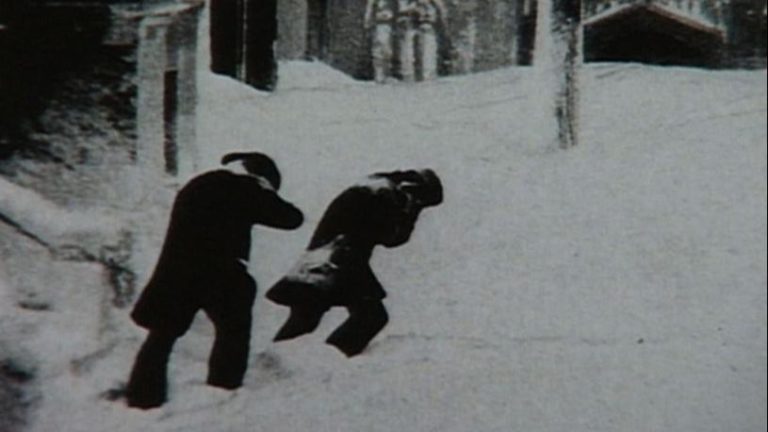“Bombogenesis” is my favorite word this week. It is meteorologist’s jargon for what is happening off America’s Eastern Seaboard. It was last popularized, if I recall aright, four years ago, when we had about twenty of them in the North Atlantic, within a January and February.
These storms result from a form of collision between high and low-pressure cells. The air pressure suddenly drops, and sailors are in for quite a blow. A lot of snow is dumped along coasts. But it is not the end of the world; not yet.
The fish in the sea are probably exempt, but I’ve noticed that animals on land often react to these pressure drops: even cats and dogs. They know to seek shelter. Humans, not so much, till they have heard a weather report; but as the keeper of a municipal weather station when I was a high-school kid, I found that I could tell, too. This was because I was “open to the experience.”
Many things that humans can do are not apparent to most humans. I used the topical example, but could fill columns like these with what I am inclined to call “the divine graces.” We have the equipment to discern minute variations through each of several dozen internal and external physical senses (according to medieval counts from both Europe and China).
We could all master wine tasting, if we had the will; or walk through forests with our eyes closed. I know people, not exceptionally learned, who can read and write in five or more languages. Almost anyone can be taught to sing, dance, draw; and, in consequence, can do any number of things most people can’t. Such as: walk elegantly.
Big cities make us stupid. (I was reporting weather from a small town.) In the countryside, one picks up on small, subtle things, including the behavior of animals. Words, too, may have different significations when, in freedom from big-city distractions, they are heard with attention. Irony becomes different in kind, once the “jokey” quality is discarded, that is required for a general audience of the half-listening. Which is why, incidentally, our “media of news and entertainment” are such brain-killers.
Of course, big-city vanity compensates for this. We think that we are clever and that country folk are slow, and can prove this to ourselves by simple tests. We’re very good at, say, avoiding automotive vehicles, and lose a surprisingly small proportion of pedestrians and bicyclists in the course of an average year. And we can do multiple tasks at the same time, if all very poorly.
While listening last Sunday (with attention) to a homily by one of my favorite priests, I was made more aware of the moral dimension of human stupidity. A certain Fr. Philip Cleevely was expounding a saying of Saint Paul: “Through God you are no longer a slave but a son, and if a son then an heir.”

What is it that keeps us enslaved? When we are heirs, “actualized” through Christ? And when we have all the means necessary to rise to our inherited station? Fr. Cleevely:
Saint Paul’s way of expressing this is to say that, because of sin, we are like adults who have become children, cast adrift from the rights and responsibilities of our maturity. It is an intriguing and very suggestive image: sin as a kind of infantilization. And this infantilization, brought about by sin, is something that we will to occur, or at least it is something in which we willingly collaborate. Sin is our willful participation in a collective defection from maturity. . . .Sin is revealed, in a way quite simply, even disarmingly, as a refusal to be grown up.
We flatter ourselves, not only by the sins we commit, but by our modern conception of what sin is. We think that we are enacting “some momentous alternative to the good,” when really we are just being thick.
To my mind, the history of this idiocy goes back, as so many things, to the Reformation, with its new respect for the Devil. To the “pre-reformed,” medieval mind, this devil himself could be a figure for mockery. But to Milton, he was something grand; the unintended tragic hero of Paradise Lost. The great sinners of history – the Hitlers and Stalins and Maos – become larger than life for us, when we should see that they are smaller.
And we, from pride, compliment ourselves when we have “gamed the system.” Having demeaned not the devil, but God, in our grey “agnosticism,” we praise the ruthless and successful, and sneer at all the humble “losers.”
Our whole conception of freedom has been reduced to the dumb idea that we are “free to choose” in our own – very short-term – interest. And we protest only obstructions to that paltry freedom, including the obstructions of Nature, which made us (to give only one example) male or female.
We are unacknowledged antinomians, and that is why we cannot understand that freedom from sin entails freedom from the law. For if we were free of sin, we could do as we pleased without transgression. But as we are not, we have to be restrained. The real choice is between humility and humiliation.
And we get this wrong because we are stupid; because we do not learn; because we will not grow up, and act like adults. For the means to a better station in life – to the immortal station intended for us from the beginning – is all around us. There is no direction in which to walk, no place that we may be still, where liberation is beyond our reach.
“Man is born free, but everywhere he is in chains.” Thus saith Rousseau. He has got this exactly backwards. Man is born enchained, but everywhere can be free if he wishes. He has nothing to lose but his stupidity.
**Image: Blizzard, Ithaca, New York, 1888














